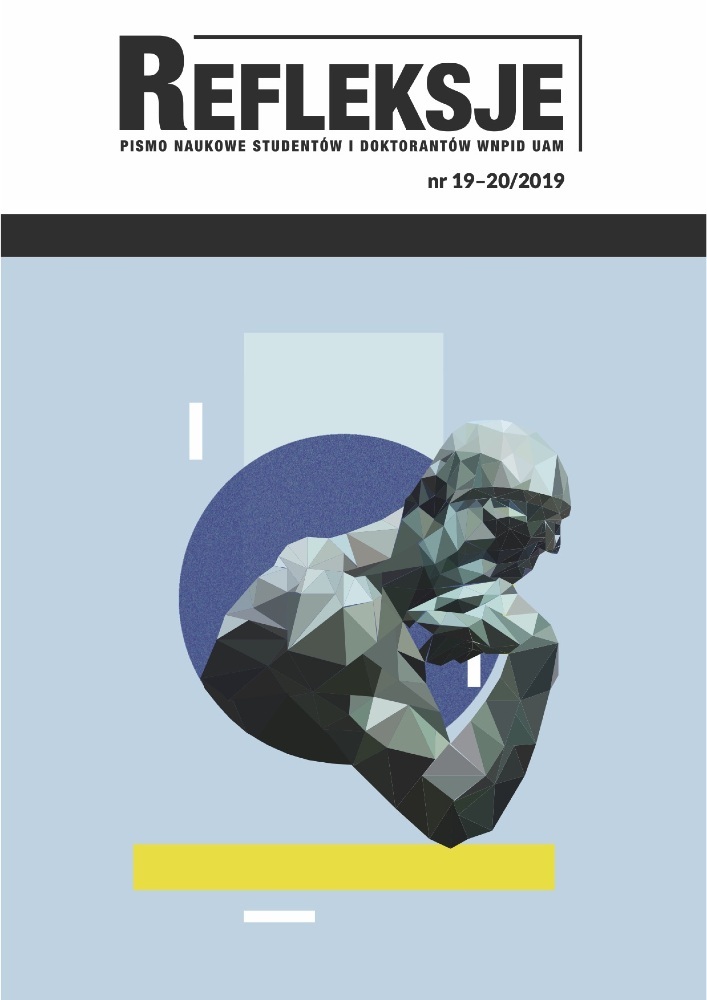Abstract
The specific international situation of Taiwan is reflected in the self-identification of its residents. The island’s population can choose between Chinese, Taiwanese and Chinese-Taiwanese national identities. The complicated history only deepens the confusion associated with the self-determination of the islanders. Their final choice may have global consequences, as it may contribute to the war of the great powers. At present, however, it is an interesting example of building a nation that needs to be explored
in order to get to know better nation building processes.
References
Anderson B. (2006), Imagined Communities. Reflections on the Orgin and Spread of Nationalism, Verso, London–New York.
Chia-hung T. (2016), Regional Divide and National Identity in Taiwan: Evidences form the 2012 Presidential Election, „Issues & Studies: A Social Science Quarterly on China, Taiwan, and East Asian Affairs”, vol. 52, no. 2, https://www.worldscientific.com/doi/abs/10.1142/S1013251116500077, 27.03.2019.
Election Study Center, National Chengchi University, https://esc.nccu.edu.tw/course/news.php?Sn=166, 27.03.2019.
Gellner E. (1983), Nation and Nationalism, Cornell University Press, Ithaca.
Haas E. B. (1986), What is Nationalism and Why We Study it?, International Organization, vol. 40, no. 3, http://www.jstor.org/stable/2706824, 27.03.2019.
Hsin-yi Y. (2016), Using an awakening narrative to leave behind a former national-identity: an investigation of the conversion of national-identity in Taiwan, „Nations and Nationalism” 22 (3), https://onlinelibrary.wiley.com/doi/abs/10.1111/nana.12161, 27.03.2019.
Hughes C. (1997), Taiwan and Chinese nationalism. National identity and status in international socjety, Routledge, London–New York.
Jie L., Yu-tzung C. (2014), Language Sterotypes in Contemporary Taiwan: Evidence from an Experimental Study, „Journal of East Asian Studies” 14, https://www.researchgate.net/publication/258265702_Language_Stereotypes_in_Contemporary_Taiwan_Evidence_from_an_Experimental_Study, 27.03.2019.
Jih-wen L., Yuan-han C. (2001), Political Development in 20th-Century Taiwan: StateBuilding, Regime Transformation and Construction of National Identity, „The China Quartely”, vol. 165, https://doi.org/10.1017/S0009443901000067, 27.03.2019.
Mojsiewicz C. (red.) (2000), Leksykon współczesnych międzynarodowych stosunków politycznych, ATLA 2, Wrocław.
Sławiński R. (2011), Etnosy na Tajwanie, „Krakowskie Studia Międzynarodowe” VIII, nr 1, https://ksm.ka.edu.pl/tresc/1-2011-Slawinski.pdf, 27.03.2019.
Smith A. D. (1998), Nationalism and Modernism. A critical survey of recent theories of nations and nationalism, Routledge, London–New York.
Taiwan’s Election and Democratization Study, http://www.tedsnet.org/teds_plan/, 28.03.2019.
Taylor J. (2000), The Generalissimo’s Son, Harvard University Press, Cambridge–Massachusetts–London.
Waszczyńska K. (2014), Wokół problematyki tożsamości, „Rocznik Towarzystwa Naukowego Płockiego”, nr 6, http://www.tnp.org.pl/Wokol_problematyki_tozsamosci.pdf, 27.03.2019.
Yinan H. (2014), Identity Politics and Foreign Policy: Taiwan’s Relations with China and Japan, 1895–2012, „Political Science Quarterly”, vol. 129, no. 3, https://www.researchgate.net/publication/265556035_Identity_Politics_and_Foreign_Policy_Taiwan’s_Relations_with_China_and_Japan_1895-2012, 27.03.2019.
